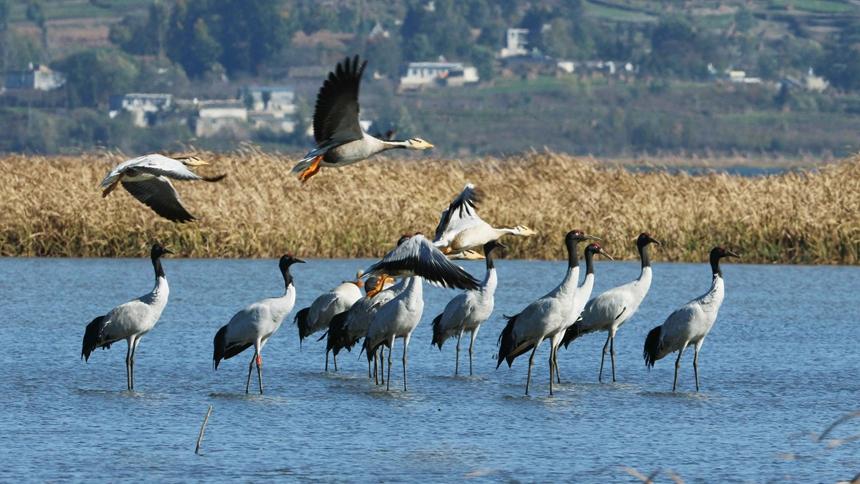Stories of China's high-quality development | China links its most remote communities to digital world
At the Axi Ranch, 4,000 meters above sea level in southwest China's Sichuan Province, herder Tashi chats with family by video while tending his livestock - a scene unthinkable just years ago in this remote corner of the Aba Tibetan and Qiang Autonomous Prefecture.
A new communication tower has brought this distant pasture into the digital age. Local herders now watch videos, read news, shop online and monitor their livestock through mobile phones. They can also sell beef, mutton, dairy products and handicrafts to nationwide customers online.
This digital transformation became possible after China Tower Co., Ltd. Aba Prefecture Branch completed the installation of the communication tower in late 2022, despite daunting challenges.
"I remember when the communication tower began operating, local herdsmen raised banners and set off firecrackers at the villagers' committee to celebrate," said Tong Jing, a company employee.
Tong said herdsmen called the tower their best New Year gift, enabling them to connect with the outside world through their phones.
The construction at Axi Ranch began during the year's coldest period, with snow depths of 1.5 meters and winds reaching gale force 10. The team faced multiple challenges, including high-altitude oxygen shortages, extreme weather and difficult access to the remote site.
"Building communication towers in remote and border areas isn't just about economic returns. It's more about improving people's livelihood. Centrally-administered SOEs should be a forerunner in providing social values while also realizing significant economic value," Tong said.
In China, wherever there are people, there are communication towers.
Communication towers now serve as public infrastructure across China's remote regions. These include the mountains of Yili in Xinjiang, the Greater Khingan Range, border areas near Ruili in Yunnan, and waters east of Zhoushan in Zhejiang. The towers benefit locals, tourists and businesses alike.
(Web editor: Hongyu, Wu Chengliang)









